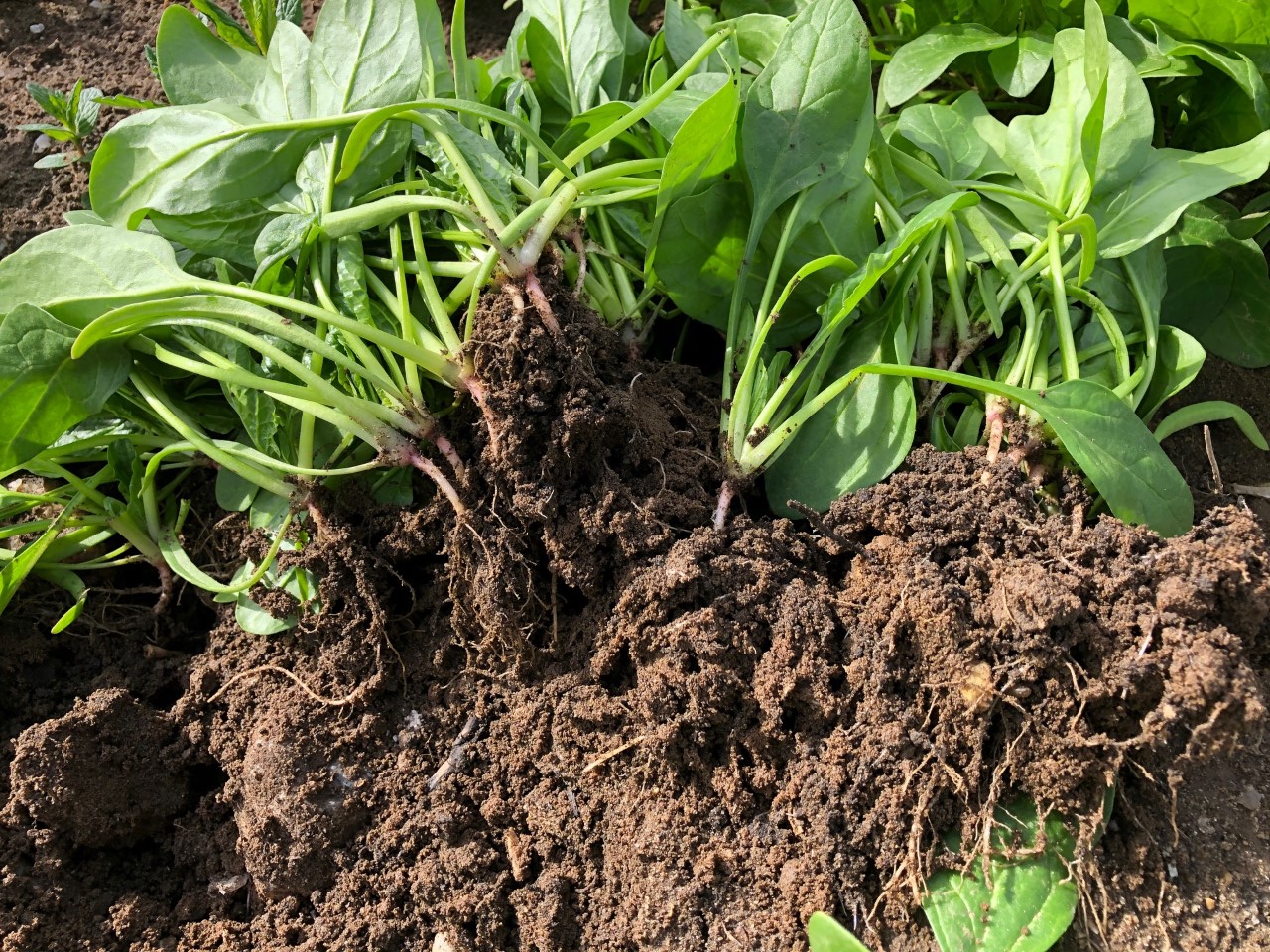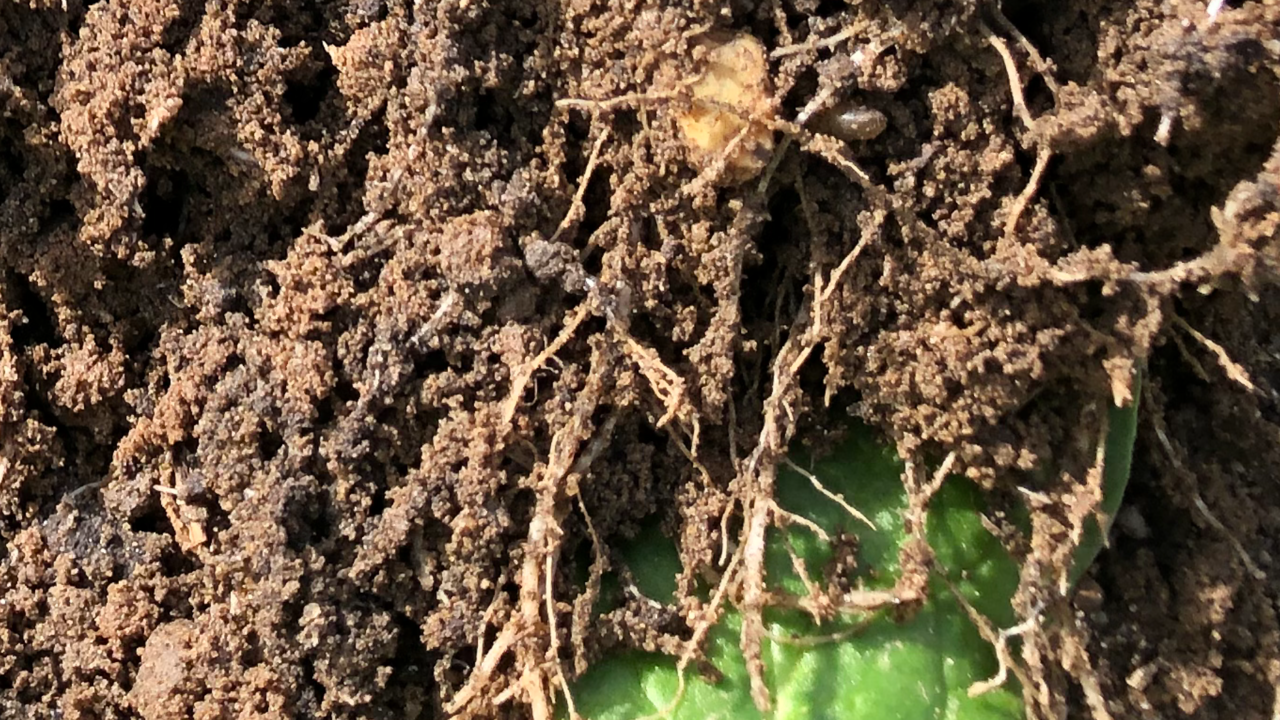
Following termination of a long-term perennial crop this field has grown its first short rotation salad and the condition of the soil is noticeably enhanced in comparison to other local fields which have been under conventional annual cropping.

The soil particles clinging around theses roots is a sign of a truly healthy functioning root environment.
Organic compounds exuded from these young roots support the perfect symbiotic rhizosphere environment where soil dwelling microorganisms feed on the organic acids and sugars and they in turn excrete binding substances causing a thin layer of soil to adhere to the roots known as a rhizo-sheath. This layer of fine soil particles improves root-soil contact and therefore assists in more efficient water and nutrient uptake. These essential symbiotic relationships are the key to healthy plants which inevitably require less pesticides and fertilisers to produce the same yields.
Prior to the 15 year perennial crop this light sandy soil was under an intensive vegetable rotation which involved high frequency tillage operations. In order to maintain the benefits of this newly revitalised soil we must carefully manage all future cultivation’s and strive to maximise living cover and roots.